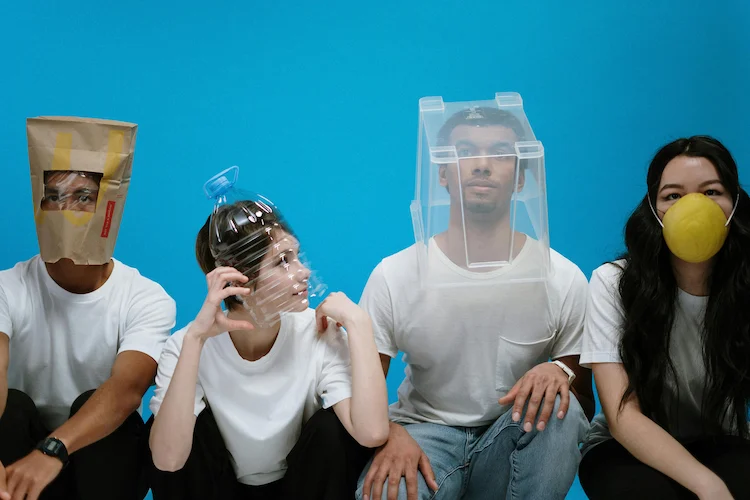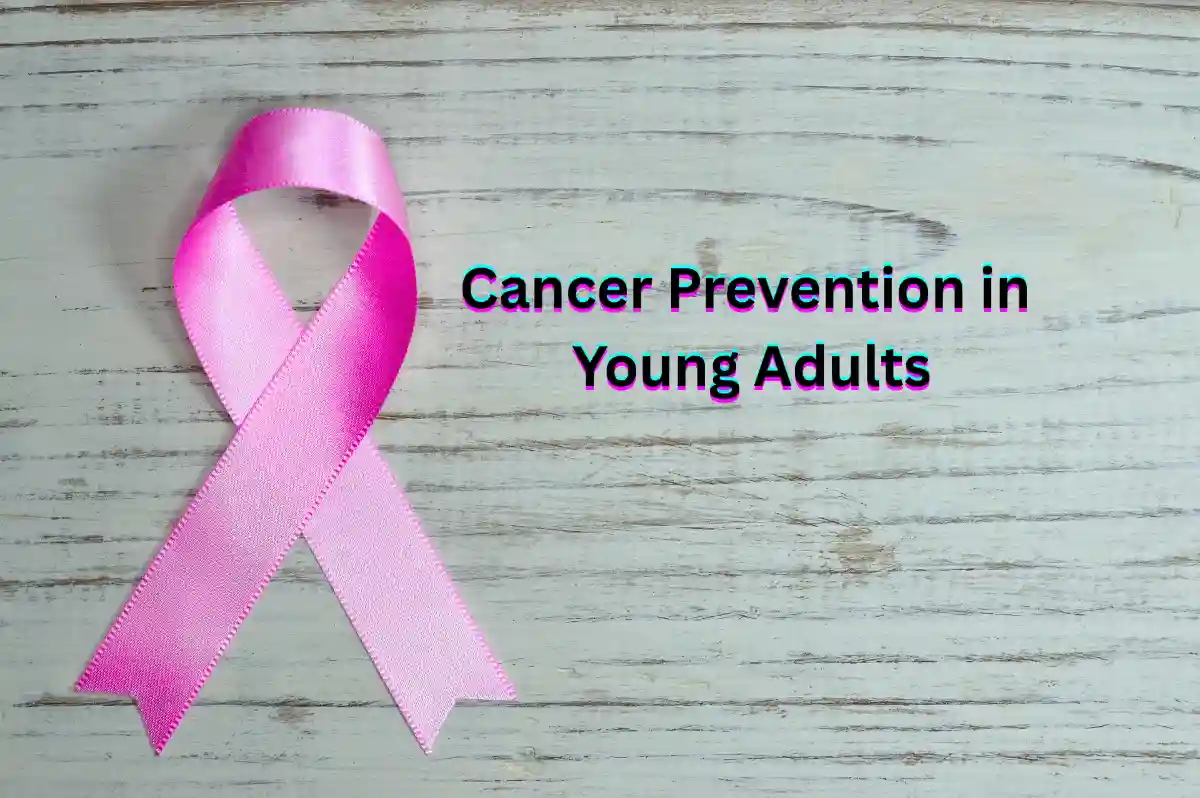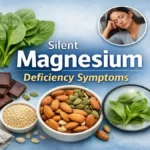Introduction: When death becomes a shadow in youth
Cancer rates among young adults are rising faster than ever. Colon, breast, and thyroid cancers are now common in people as young as 20–39. This guide will show you the early symptoms to watch, risk factors to avoid, and lifestyle changes that can cut your risk in half.
Why Cancer in Young Adults Is Rising
According to new studies, the cancer prevention in young adults movement is gaining momentum worldwide. Rising stress, pollution, poor diets, and genetics are fueling a silent epidemic of early-onset cancer — with symptoms now showing up as early as the late 20s.
Importance of Early Awareness
- The movement for early-onset cancer prevention underscores the importance of awareness and education regarding this issue.
- Many initiatives are focused on preventing cancer in 30s, emphasizing lifestyle changes that can reduce risk.
- For reducing cancer risk in young adults, regular screenings and a healthy lifestyle are essential.
- Understanding the importance of lifestyle tips to reduce cancer risk can lead to better health outcomes.
- Early-onset cancer prevention begins with recognizing the signs and symptoms early.
- There is a growing need for effective Cancer Prevention in Young Adults strategies to counteract rising cancer rates.
A Hidden Threat in Healthy Bodies
In the last few years, medical research has revealed a shocking truth – cancer is no longer a disease of only the elderly. Even young men and women between the ages of 20 and 39 who look healthy are rapidly falling prey to deadly diseases like cancer.
Reports from 2025 show that cancers, especially colon, breast, thyroid, blood, and pancreatic cancers, are increasing rapidly among young adults.
And the sad part is that they are often hard to recognize in the early stages — because symptoms come on gradually and are often ignored.
What This Guide Will Cover
In this article, you’ll discover practical ways to lower your cancer risk as a young adult.
We’ll explore why early detection matters, which lifestyle habits offer the strongest protection, and how awareness campaigns are changing the way people in their 20s and 30s think about long-term health.
From medical screening updates to daily routines that strengthen immunity, the goal is simple: help you stay informed, take action early, and build a healthier future.
Early-onset cancer risk factors
- Which symptoms should alert you immediately if you notice them in your 30s
- And how to adopt an anti-cancer lifestyle for young adults
Part 1: Why is cancer increasing in young adults?

Top Early-Onset Cancer Risk Factors in Young Adults
According to medical research, obesity cancer link young adults is one of the fastest-growing triggers today. Belly fat increases systemic inflammation, promoting cancer cell growth in early adulthood.
What does the latest research say?
- According to the WHO report, about 1.3 million cancer cases were reported in the age group of 20–39 in 2022.
- Early-onset cancers have increased by 79% over the past 3 decades.
Engaging young adults in discussions about Cancer Prevention in Young Adults will help spread awareness.
Fastest growing cancer types:
- Colon
- Rectal
- Pancreatic
- Breast
- Thyroid
- Testicular
Healthy habits play a vital role in Cancer Prevention in Young Adults.
Awareness about Cancer Prevention in Young Adults can lead to early diagnosis and treatment.
This is a medical alarm that can no longer be ignored.
Top 10 Early-Onset Cancer Risk Factors in Young Adults
1. Obesity and metabolic imbalance
- Obesity has been found to have a deep relationship with cancer risk in young adults.
- “Obesity cancer link young adults” has become a trending topic, as belly fat and visceral fat trigger cancer-related inflammation.
2. Highly processed, low-fiber diet
- White bread, sugary drinks, processed meats – all of these damage the colon lining.
- This is why colon cancer under 40 symptoms are now topping the medical list.
3. Sedentary Lifestyle
- Sitting for 9–10 hours, without exercise – reduces the body’s ability to detox.
- Excessive accumulation of toxins increases DNA mutations.
4. Lack of regular screening
- Young adults think that they are not of the age to get screened, whereas the young adult cancer screening guidelines clearly state – if there is a family history or symptoms, get tested early.
5. Genetic mutations and Family History
- Genetic conditions like BRCA1/2, Lynch Syndrome increase the risk at a young age.
6. Sleep deprivation and chronic stress
- Less sleep and more stress directly suppress immunity, which increases precancerous cells.
7. Environmental pollutants
- Carcinogens like PM2.5 in the air, microplastics, food preservatives are becoming the biggest environmental causes of cancer in young adults.
8. Vaping, Alcohol and Smoking
- Vaping is now considered harmless, but its aerosol contains cancer-causing agents.
Part 2: Symptoms of Cancer in 30s — Are there any hidden signs in your body?
Cancer often causes no pain in the beginning—and that’s where the mistakes start.Today we’ll talk about the symptoms that should never be ignored in your 30s.
7 Common Symptoms of Cancer in 30s You Must Know
Ignoring even one of these symptoms of cancer in 30s can delay diagnosis and risk survival.
1. Unexplained Weight Loss
- Losing 5-6 kg of weight without any dieting – can be a warning signal.
2. Extreme Fatigue
- If you don’t have the energy to do daily tasks – your body is giving some signals from within.
3. Changes in Bowel or Bladder Habits
- Frequent constipation, loose motion or bleeding – especially colon cancer under 40 symptoms.
4. Lumps or Swelling in Breast, Neck, Testicles
- Don’t “wait and watch” any strange lump – get it checked out immediately.
Critical Breast Cancer Awareness: Causes, Symptoms & Prevention, Read More.
5. Persistent Pain or Cough
- A pain that’s lasted for months or a cough that won’t go away — there could be early changes in the lungs or bones.
6. Skin Changes
- Change in colour of mole, increase in size, bleeding – symptoms of melanoma.
7. Night Sweats and Fever
- Night sweats or frequent fever without infection – could be signs of blood cancer or lymphoma.
Most Common Cancer Types in Young Adults (20–39)
| Cancer Type | Key Symptoms | Gender |
| Colon/Rectal | Constipation, blood in stool, bloating | Both |
| Breast | Lump, nipple discharge, dimpling | Women |
| Thyroid | Neck lump, hoarseness, difficulty swallowing | Both |
| Testicular | Lump in testicle, pain, heaviness | Men |
| Cervical | Irregular bleeding, pelvic pain | Women |
| Melanoma | Irregular moles, skin changes | Both |
| Lymphoma | Night sweats, fatigue, swollen lymph nodes | Both |
| Leukemia | Frequent infections, pale skin, nosebleeds | Both |
Doctors now recommend focusing on colon cancer under 40 symptoms in both men and women to detect cancer earlier.
Young Adult Cancer Screening Guidelines (2025 Update)
Here we tell you which test should be done at what age.
| Screening | Recommended Age | Frequency | Notes |
| Colonoscopy | 45 (or 30-40 if family history) | every 5–10 years | CRC is on the rise |
| Breast Self Exam | From 20 | Every Month | Awareness for Lump |
| Cervical Pap Test | From 21 | every 3 years | HPV detection |
| HPV Vaccine | 11–26 | one time | For both Girls & Boys |
| Skin Check | From 20 | Yearly | Especially for fair skin people |
| Testicular Self Exam | 20–40 | Every Month | Early detection is key |
These updated young adult cancer screening guidelines can save lives if followed consistently, especially in genetically prone individuals.
Anti-Cancer Lifestyle for Young Adults: 10 Habits
Studies show adopting an anti-cancer lifestyle young adults can reduce cancer risk by 50%. It’s more than food—it’s stress, sleep, movement, and mindset.
Diet to Reduce Cancer Risk Young Adults
A personalized diet to reduce cancer risk young adults must include high-fiber, fermented foods.
- Whole Plant-Based Diet:
Fruits, vegetables, whole grains, and pulses — every day. - Probiotic Foods:
Curd, kimchi, dry ginger water – restores gut health. - Herbs & Spices:
Turmeric (curcumin), basil, ginger – natural anti-inflammatory agents. - Limit:
Red meat, processed food, deep-fried snacks, sugar, soda।
Anti-Cancer Habits:
- Walk or exercise for 30–45 minutes daily
- 7–8 hours of deep sleep
- Distance from alcohol and smoking
- Monthly Body Self-Check
- Stress management: meditation, breathing, journaling
Top Environmental Causes of Cancer in Young Adults
Microplastics, endocrine disruptors, and poor air quality are now considered serious environmental causes cancer in young adults, especially in cities.
.Top Environmental Causes of Cancer in Young Adults
1. Air Pollution & PM2.5 Exposure
- Toxic particles (PM2.5, PM10) cause DNA mutation.
- Youth living in urban cities are most at risk.
2. Microplastics in Water & Food
- Bottled water and seafood have been found to contain microplastics that are endocrine disruptors.
- These can cause carcinogenic effects, especially in teenage and young bodies.
3. Endocrine Disruptors (BPA, Phthalates)
- Found in perfumes, plastic containers, canned foods.
- Both are linked to hormonal imbalance and cancer risk.
4. Radiation from Gadgets
- Constant use of phone, laptop, Bluetooth earbuds – increases long-term low-grade radiation.
5. Pesticides & Herbicides in Food
- Chemicals like glyphosate and atrazine sprayed on non-organic fruits/vegetables are proven carcinogens.
Therefore “environmental causes cancer in young adults” has become a fast-growing keyword in the health sector.
Long-Term Prevention Plan
It’s essential to discuss Cancer Prevention in Young Adults openly and frequently.
If you really want to avoid any risk of cancer in your 30s–40s – then you have to fight not just the disease but also the environment that creates the disease.
Natural Cancer Prevention in Young Adults – 10-Step Checklist
To truly focus on cancer prevention in young adults, here’s a 10-step routine you must implement in your 20s and 30s.
- Eat rainbow daily – Eat 5 colors of fruits/vegetables every day
- Daily 45 min physical movement – walk, yoga, stretch
- Eliminate junk, refined sugar & soda
- Switch to glass/stainless containers – no plastic
- Drink filtered, mineral-rich water
- Deep sleep 7–8 hours (avoid blue light before bed)
- Limit alcohol, quit smoking/vaping
- These habits, along with excess weight, support the obesity cancer link young adults that is rising globally.
- Learn monthly self-exam (breast/testicular)
- Manage chronic stress – write journal, meditate
- Yearly full-body checkup after 25 (especially with family history)
This lifestyle not only protects against cancer, but also against heart disease, obesity, and diabetes.
According to the American Cancer Society, early detection is key in cancer prevention in young adults.
FAQs – Early-Onset Cancer Risk & Prevention in Young Adults
Q1. I am having some symptoms, what should I do?
Ans: Contact the doctor without delay. The earlier the diagnosis, the easier the treatment.
Q2. Is screening necessary in 20s–30s?
Ans: Yes, especially if there is a family history or unusual symptoms. Follow young adult cancer screening guidelines.
Q3. Is prevention possible through diet alone?
Ans: “diet to reduce cancer risk young adults”This is a strong method, but lifestyle and environmental awareness are equally important.
Q4. Can diet really prevent cancer in youth?
Ans: Yes. A strong diet to reduce cancer risk young adults includes fiber, antioxidants, and probiotic-rich food.
Q5. What if I feel symptoms?
Ans: Never ignore symptoms of cancer in 30s. Consult your doctor for screening today.
Conclusion: Early Action = Longer Life
Cancer often begins quietly, but small changes made early can protect you from big risks later. Eating balanced meals, staying active, and going for regular check-ups may sound simple, yet they are powerful tools for prevention.
The earlier you recognize warning signs and act on them, the stronger your chances of staying healthy. By choosing awareness and consistency, young adults can shape a future with fewer cancer cases.
Start today—take charge of your health, support others, and build a cleaner, safer lifestyle.
Read -: PCOS Symptoms, Causes & Treatment: Complete Guide 2025






